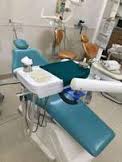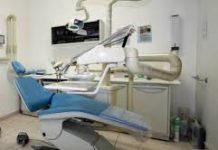Cure tooth decay.
Tooth decay is a widespread condition that occurs when a poor oral hygiene or a high-sugar diet mix with bacteria living in plaque. Bacteria normally live in our mouth and form plaque, a sticky transparent deposit on teeth in which they proliferate.
When plaque is not accurately remove by brushing and flossing bacteria react with sugars and convert them in acid: acid starts to corrode enamel by demineralizing the structure of the tooth and the decay can go on to dentine and pulp; it form cavities or caries, that are holes in the teeth, a common cause of tooth loss in young and adult people.
Tooth decay. Other causes.
Tooth decay can be also due to a weakening of the immune system or in case diseases or medications cause a decrease in salivary flow. Also there are groups of people that have a higher risk for caries than others: lower-income families, people with diabetes, tobacco, alcohol or drug users, people who consume large amounts of carbonated and sugar drinks.
Treatments are very different, efficent and innovative, but there are some suggestions to better face the problem before it get worse: a daily and appropriate oral care, regular check-ups to the dentist and to keep an eye on sugary or acidic food and drinks: bad eating habits as frequent snacks or an excessive consumption of sweet food increase the risk of tooth decay and the high frequency of sugar ingestion mantains an acidic pH into mouth.
Even if tooth decay may not causes any pain, especially in its first phase, there can be some sympotms like toothache or dental sensivity, black or grey spots on teeth, bad breath, an umpleasant taste in mouth.
Treatment for tooth decay.
Treatments are different, depending on the stage of the decay: for early stages probably the dentist will apply topical fluoride; if the holes become visible on tooth it can be treated with filling, but if the caries get wider, a crown may be use to protect the structure of the tooth.
If tooth decay has spread to the pulp it may be removed with a work called root canal treatment; when tooth can’t be restored it probably must be removed and replaced with a partial denture, bridge or implant.
Tooth decay treatment. Recent studies.
New approaches lead to new treatments: according to a study published in the ‘British Medical Journal’ cavities could potentially be reversed with diet; besides, there is an innovative therapy that is being developed in London called Electrically Accelerated and Enhanced Remineralisation (EAER): it accelerates the natural movement of calcium and phosphorous minerals with a tiny electric current that push minerals into the repair site.
According to the ‘Guardian’ this new treatment could be available by 2017.





